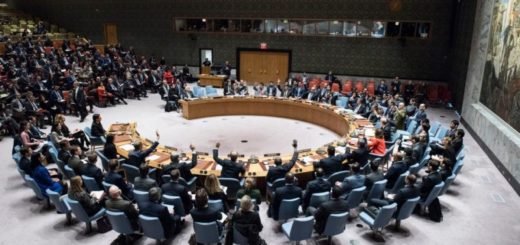Trump, Abe say ‘imperative’ to dismantle N. Korean weapons
President Donald Trump and Japanese Prime Minister Shinzo Abe agreed Monday that it is “imperative” to completely dismantle North Korea’s nuclear weapons and ballistic missile program, the White House said.
The US and Japanese leaders will meet ahead of a much-anticipated summit with North Korea’s Kim Jong Un back on schedule for June 12 in Singapore just days after Trump announced he was canceling it.

GETTY IMAGES NORTH AMERICA/AFP/File / JOE RAEDLE. The White House said Japanese Prime Minister Shinzo Abe, left, and President Donald Trump will meet ahead of a much-anticipated summit with North Korea’s Kim Jong Un
The American president said the summit could go ahead as planned following a more appealing statement from Pyongyang and productive talks with North Korean officials.
Japan, which has by far the hardest line compared to neighbors China and South Korea, has been left uneasy by the pace of events, and by what it sees as an unwarranted softening toward an untrustworthy Pyongyang.
Abe and Trump spoke by telephone a day after American and North Korean officials met at a border truce village to prepare for the summit.
Our United States team has arrived in North Korea to make arrangements for the Summit between Kim Jong Un and myself. I truly believe North Korea has brilliant potential and will be a great economic and financial Nation one day. Kim Jong Un agrees with me on this. It will happen!
— Donald J. Trump (@realDonaldTrump) May 27, 2018
During a telephone call, the pair “discussed recent developments in North Korea and confirmed they would meet again to continue close coordination in advance of the expected meeting between the United States and North Korea,” a White House statement read.
“The president and prime minister affirmed the shared imperative of achieving the complete and permanent dismantlement of North Korea’s nuclear, chemical and biological weapons and ballistic missile programs.”
Washington wants North Korea to quickly give up all its nuclear weapons in a verifiable way in return for sanctions and economic relief.
Pyongyang has a different view of denuclearization and remains deeply worried that abandoning its deterrent would leave the country — and its leader — vulnerable, especially while the United States maintains a robust military presence in South Korea.


















